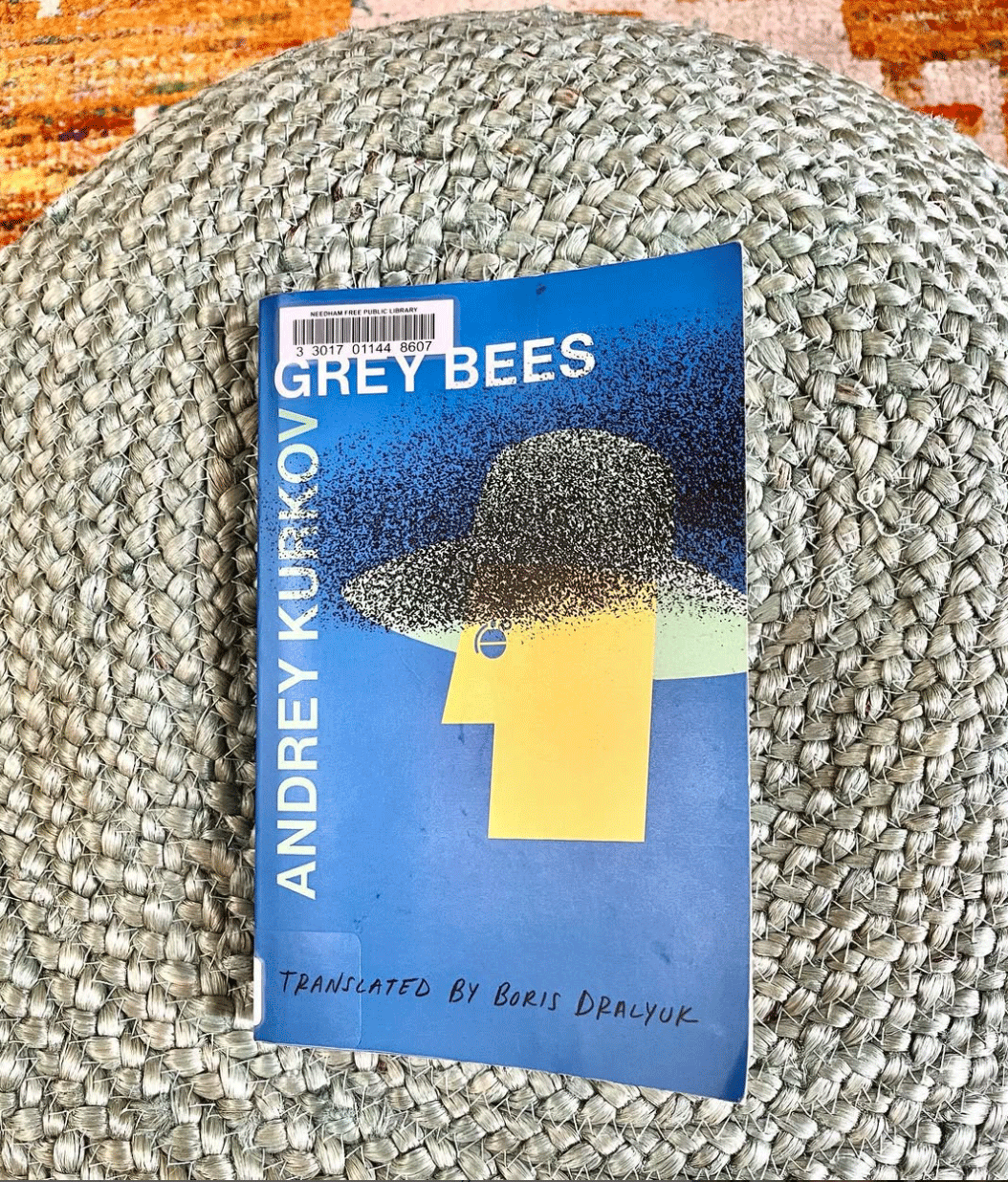
READ ALL ABOUT IT
Since 2012, I’ve been writing about books. And the act of reading. And the importance of story and narrative. But, mostly, the underlying theme of all I write is how taking a moment to stop and digest some longform text — instead of scrolling, instead of watching a video, instead of multitasking — can be one of the most grounding things we can do for ourselves. Here’s the one-stop online home for all this writing.
You can read more about me and my work by moseying over here. Want to peruse periodic “essay drops” — excerpts from my work-in-progress essay collection about Homesickness? Here ya go.

Foster
Ok. So I should just go ahead and read everything that Claire Keegan has written, correct? (Correct.)

Fleishman is in Trouble

A Selfie of One’s Own With Virginia Woolf
If you could take a selfie with an author, would it be…Virginia Woolf?

If I Survive You
“We can do [survive] hard things!” (Name the wannabe psychologist who likes to say this.) While I for sure don’t disagree with that statement, I suppose it doesn’t resonate with me (and often makes me feel kinda sad) because there always seems to be a whiff of oblivious privilege involved. While everyone needs a boost once in a while — and some people of course are in seemingly impossible (and even dangerous) situations where a “pep talk” like this might give them that extra resolve — I always wonder: Is this the first time some people have been told and encouraged that, yes, they can get through a situation? People have “survived” (done “hard things”) forever. Feel free to look up the Darién Gap in Panama and the story about the young girl who got separated from her mother there.

Northern Spy
Nope, I still don’t like “beach reads,” but I’ve decided I’ll take a good thriller any day for a “palate cleanser” type of book. This one — Northern Spy, by Flynn Berry — was recommended by @katrinschumann. And btw, I totally agree with her about the title and cover design: Nondescript. But Northern Spy is a great clip of a read and revolves around the IRA in contemporary Belfast. So set aside titling and design quibbles!

Public Benefit and Jack Kerouac
The Jack Kerouac Foundation is on the road, searching for donations. OK, dumb #ontheroad joke — and the Foundation is not on the road, per se. BUT it has kicked off a capital campaign as it seeks funding for what will hopefully be The Jack Kerouac Museum and Performance Center, repurposing the former St. Jean Baptiste Church in Lowell, MA, where Kerouac once served as an altar boy and where his funeral was held in 1969. This was first reported in the Boston Globe in early January 2022…which I found out about because a news story from Boston.com showed up in my newsfeed the other day sharing that architectural renderings are now complete and public. (See pictures, obviously! And btw, all 4 images are courtesy of The Jack Kerouac Foundation & SCB Architects.)

The Trees
The Trees by Percival Everett didn’t win the Booker this year — but it did make the short list. And not that I am a Booker judge and not that I even read every other finalist — but it was important and deserving that it was on that list. I can’t even begin to think of another book I’ve read quite like it.

Babbitt
Hey, I decided to mix things up and read something old! One hundred years old to be precise, as Sinclair Lewis’ Babbitt was published in 1922.

Spotify, Apple, and Audiobooks
Separate from Elon Musk and his sink, here’s some other tech news: Spotify wants to jump aboard the audiobook revolution, but Apple is playing gatekeeper.

Desperate Characters
Scene from my couch…

Lucy by the Sea
Just finished Lucy by the Sea…typical Elizabeth Strout, which means deceptively simple observations about life that are truthful and meaningful because they’re woven into glimpses of very complex characters who readers have grown to know and love. (Can you point me to any of her novels that feature characters who don’t pop up in others?)

The Colony
Gaelic (i.e. Irish) is a compulsory subject in Irish schools. While living in Ireland, I learned that debate always brewed as to its utility and role, but for my family, it was just something different and interesting. As outsiders, we had no weighty thoughts about Ireland’s identity, and as parents, we liked seeing our children learn something new. Matt has a colleague who grew up on Inisheer, which is part of the Gaeltacht (rural districts where Irish is the predominant language); when she speaks to her family, it’s in Irish. There is also a growth of Irish-speakers in urban areas due to the popularity of Gaelscoileanna, schools outside of the Gaeltacht that instruct all subjects in the Irish language. Our friends have sent their three girls to one for secondary and/or primary school. So there’s an overly simplistic primer on Gaelic…from a non-Irish person.

I Hosted an Event with Gish Jen!
What an absolutely delightful person! I was so honored to meet the writer Gish Jen in person last night for MetroWest Readers Fest. If you weren’t able to join us, do yourself a favor and YouTube her; whatever video pops up for you, I can guarantee you’ll be enthralled by what she has to say — and how she says it. Her work isn’t included in The Best American Short Stories of the Century and she’s not on the board of the MacArthur Foundation for nothin’, after all.

Grey Bees
I first learned about Grey Bees by the Ukranian writer Andrey Kurkov back in June. (You can check out my post from June 27, which was inspired by an interview with Kurkov, in which he said, “They think you cannot mix culture and politics. I said, maybe *you* cannot. I can!”)

Horse
Coming in strong in the #FictionIsRelevant game: Horse, by Geraldine Brooks.

Visible Man Review
Here’s an example of how book clubs can be so much more than a social way to get your wine-and-cheese fix…in other words, how a book club can actually be a wonderful way to both give and receive support as well as find community.

In the Valley
Do I have a new author to place in my mental “Will Read Anything This Person Writes” file? Yes. It’s Ron Rash.

Jane Austen and the Pursuit of Status
Amanda Taub and Max Fisher write a column for the NYT called “The Interpreter,” which gives context and analysis allowing the reader to — ta da! — interpret current events. Occasionally, Taub does a dispatch called “What I’m Reading” and gives people some tips on (nonficition) books that provide more in-depth knowledge to stories that she’s reporting. For instance, in early August her “What I’m Reading” version of the column had the subhed “The seismic shifts of the 1960s are still reverberating in the Democratic Party”; in the body of the column, she gave some examples of books that helped illuminate this theme. (If you’re interested, they included The Warmth of Other Suns: The Epic Story of America’s Great Migration, by Isabel Wilkerson and Racial Realignment: The Transformation of American Liberalism, 1932-1965, by Eric Schickler.)

Booth
If I had to do a mash-up style quickie summary of Booth by Karen Joy Fowler, I’d say this novel about Lincoln assassin John Wilkes Booth and his famously theatrical family is part Hamnet (Maggie O’Farrell), part Shadowplay (Joseph O’Connor), part Lincoln in the Bardo (George Saunders). Stylistically, it reminded me most of Hamnet. (Plus it’s full of Shakespeare references). But Shadowplay is about Victorian theater and Lincoln in the Bardo is about President Lincoln’s grief for his son, so we’ve got points for thematic overlay there.

Julia Whelan is Reading to You
Audiobooks are big business. Unfortunately, I do not participate in this big business as I can’t bring myself to listen to books. This isn’t a purist thing, it’s a processing thing. For instance, I have very specific parameters for listening to podcasts: I cannot listen in the car if I’m the driver. Music only for my driving self, but I can listen and enjoy if I’m a passenger. I can listen with earbuds while I’m walking, but not running. I’ve never thought of myself as high maintenance, but maybe my ears prove otherwise.

